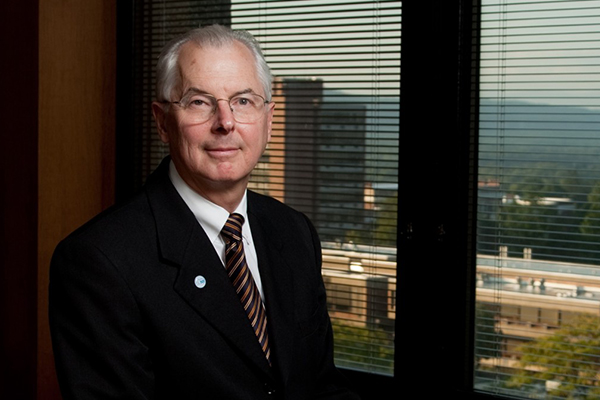President Christian comments on violence at the U.S. Capitol
This message was shared with students, faculty, staff and alumni by email on Jan. 7.
Members of the SUNY New Paltz Community:
Like many of you, I watched yesterday’s events in our nation’s capital with horror, sadness and anger. The words and actions of leaders always set a tone and a model for the behavior of others; yesterday we saw the serious consequences of leadership that many judge to be irresponsible. Make no mistake: what may have started as the legitimate exercise of political free speech devolved into violence aimed at disruption of one of our core constitutional exercises.
It does not escape me that those engaged in yesterday’s violent insurrection were afforded a vastly different response than people who last summer demonstrated in support of racial justice in the aftermath of killings of black men and women. The stark truth is that law, order and justice are not equitably defined or applied. Every time that happens and we do not name it, we silently perpetuate and validate that the ideals of democracy have been denied to some, and that a hierarchy of valuing human life remains in 21st century America.
In the end, our institutions and our democratic processes held, albeit tenuously and under continuing threats that we must all take seriously. A few key national leaders ultimately stood up for democracy while facing immense pressure to do otherwise. The outcome of Georgia run-off elections is an affirmation of the impact of sustained citizen action to counter disparities that have disenfranchised many voters for decades.
I join the chorus of other higher education leaders in pointing to yesterday’s events and all that led up to them as a reminder that our educational responsibilities include preparing citizens who are informed and engaged in the civic life of our democracy. We must work against the notion that higher education is an unworthy investment. We must continue to claim our critical role of ensuring that the next generation of citizens and leaders seek out diverse perspectives and develop the critical thinking skills to question incomplete narratives. We must teach students to rely on respect for the value of evidence, informed analysis, and science; on drawing distinctions between fact and opinion; and recognition that expertise matters. These call for well-developed information-literacy skills and willingness to engage in informed dialogue that we seek to instill in our students. This is how we fulfill our mission and prepare students to engage in the responsibilities of citizenship. Yesterday was another in a growing string of consequences of ignoring those principles (think: election integrity; pandemic management; human-driven climate change; wide economic and racial disparity). Yesterday is the cost we all pay if we fail in our mission.
Words from my November 2016 monthly report, shared again this past October, resonate today:
I wish to open this month’s report, coming on the heels of a historic presidential election, by acknowledging that the outcome has generated mixed reaction among members of our community — uncertainty and concern among some, satisfaction for others. Our campus is a diverse array of different races, religions, national origins, sexual and gender orientations/identities, ages, physical abilities, intellectual interests and viewpoints. This is a time when our ability to live with ambiguity and change will be fully tested, and as college president, I urge patience and tolerance with each other. In the midst of this national transition, the College will remain true to our values of providing access to high-quality educational opportunity for all. Know that I am committed to our educational mission and the academic and human values at the core of our work. As educators, we must seize this opportunity to help our students understand and be mindful of the historic, cultural, social and psychological elements at play at this time in our nation through our coursework, our conversations and our treatment of each other.
It is impossible to shrug off the impact of yesterday’s events on how we all approach our lives, our work, and our studies. The University of California at Davis shared these suggestions with members of its community who will struggle with making sense of these events:
Acknowledge your feelings
Reach out to people you trust
Stay informed, but know your limits
Set boundaries
Practice self-care
I hope that we can continue to support each other as members of an engaged educational community, that we can hold on to a collective hope for the future and a sense of empathy and compassion as we work to address the fundamental, pressing issues that we face.
Sincerely,
Donald P. Christian
President

